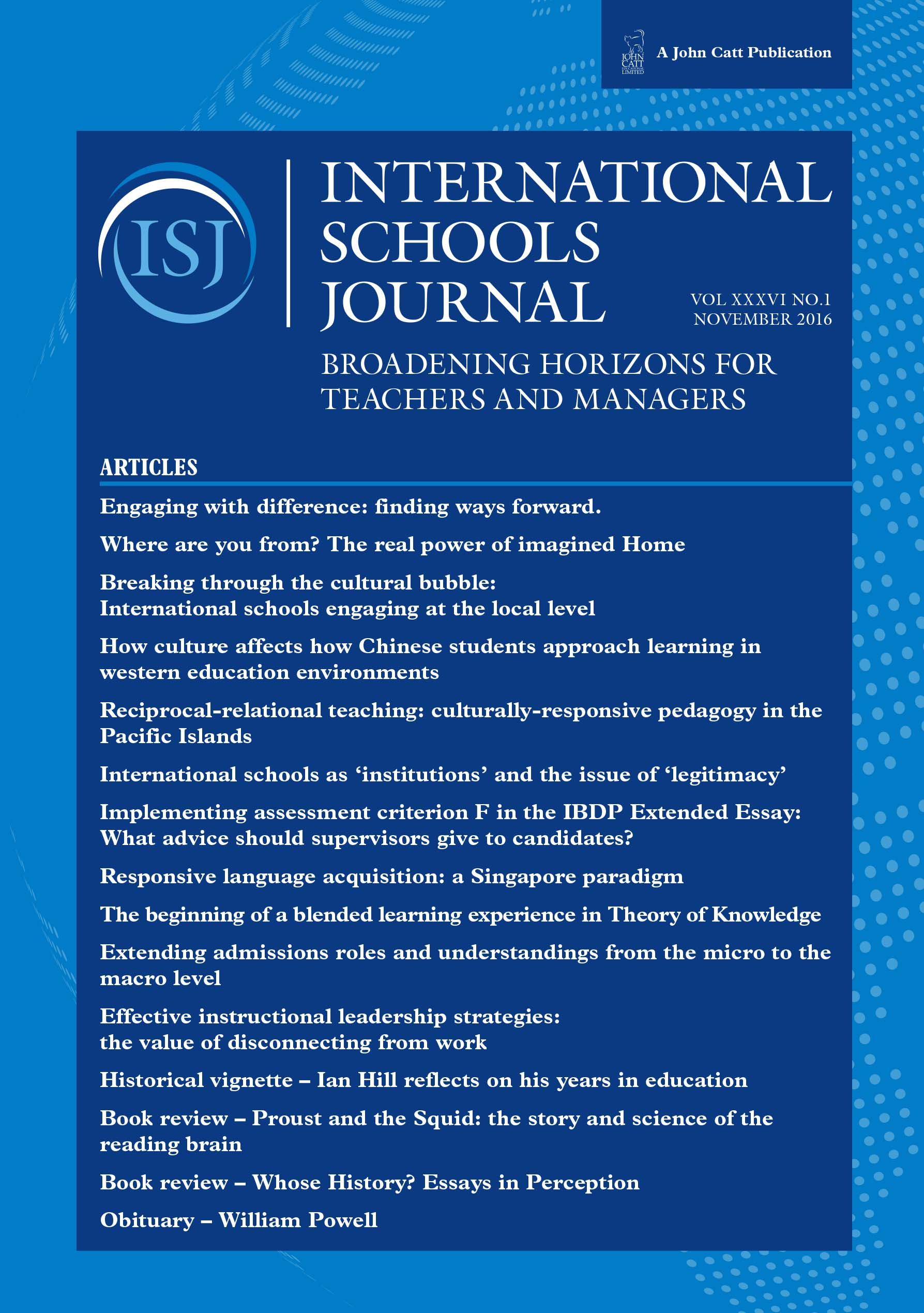ISJ November 2016: Effective instructional leadership strategies – the value of disconnecting from work
10,00€
Deron Marvin
Abstract:
Three months ago I attended a conference where I listened attentively to one of the keynote speakers. He stated: In order for our schools to catch up to the 21st century, “Teachers should not be shift workers where they check-in and check-out.” That statement embodies the prevailing contemporary thinking … teachers should continuously be ‘on’ the job; if they are not, then they are ineffective. Regardless of whether we accept that keynote’s statement or not, through research and observation, we know that an unremitting connection to work will result in burnout and fatigue. Teachers will eventually experience a loss of self, and in some cases a loss of privacy. This now-conventional belief is something worth reconsidering.
As educators, we know that feedback, instructional quality, and direct teacher instruction are the most influential factors for successful student outcomes (Christodoulou, 2014). In that case, we should then agree that when teachers are revitalised, energised, and prepared to provide those three factors, the chances of producing successful student outcomes are at their highest. My concern is that business-style methods of working are seeping into our schools, thus eclipsing the probability for successful outcomes.



